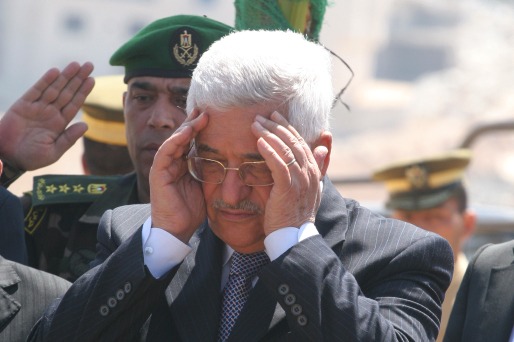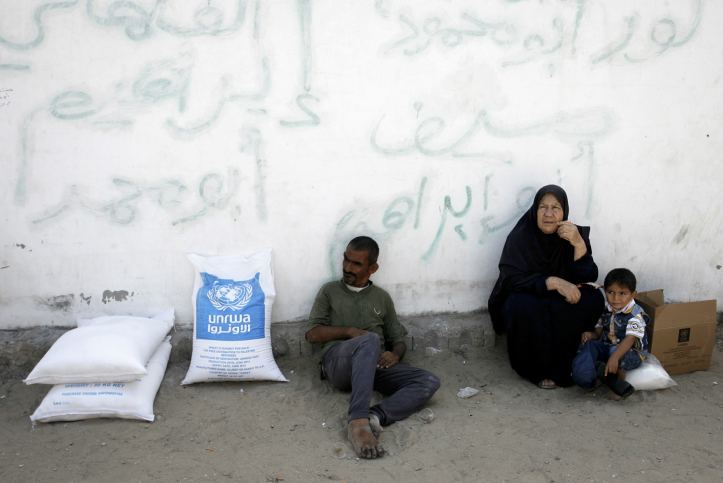Israel’s reactions thus far to Palestinian unilateral moves have been defensive and empty. It’s time to make the other side sweat.
The Palestinian unilateral proposal to the Security Council has been defeated, for now · This is a good opportunity to examine Israel’s reactive and often panicked approach to these increasingly frequent resolutions · Israel should take the opportunity to make its own proposal for peace – one which revokes the Right of Return, the Palestinians’ demographic doomsday weapon

The Palestinian bid for unilateral recognition of statehood has failed at the UN Security Council. Although they are now focused on joining the International Criminal Court, it is only a matter of time before they make another bid. Now, then, is a good opportunity to examine Israel’s approach to these initiatives and propose a more fruitful course of action.
But Israel cannot form a position or policy without first deciding how it views the international system. There are those who argue that Europeans and liberal Americans are “losing patience” with Israel because of the former’s ostensibly deep commitment to progress and human rights. But if that’s the case – then why do the same Europeans and Americans have all the patience in the world for the Chinese occupation of Tibet, the Moroccan occupation of Western Sahara, the Russian occupation of parts of Georgia, or the Turkish occupation in Cyprus? The answer is simple: states largely run their foreign policy on the basis of considerations of interest and cost-benefit calculations, not emotions and ideology.
The United States does not care about the Chinese occupation of Tibet because China holds an immense amount of American debt. On the other hand, there is a great deal of benefit in pressuring Israel on “Palestine” because of the geo-political weight of the Arab and Muslim world as well as the voting strength of Muslim populations in Europe. The geo-political power of the Arab and Muslim world is insufficient to pressure China to stop its oppression of Muslims in its Xinjiang province. Israel, by contrast, is a small country which cannot brush off international pressure the way even a regional power like Turkey can.
An Israeli Counter-Initiative
So while it is true that Israel is exposed and vulnerable to international pressure, this is due in large part to calculated interest rather than moral outrage. So people who propose a “political initiative” – likely including further concessions for a peace plan – to appease the ostensible moral and legal objections of those in the west is simply wrong. Any initiative that does not answer the west’s cold interests will have no lasting value, regardless of whatever positive press it generates.
Since the failure of Secretary of State John Kerry to effect a peace deal between Israel and the Palestinians last year, the Palestinians have focused on unilateral moves that relieve them of the need to make concessions of their own. Israel’s response is either to make empty threats, emotional grandstanding and desperate requests that the US use its veto powers at the UN Security Council. Furthermore, when Israeli politicians speak of taking an “initiative” to counter the Palestinian moves, they don’t mean diplomatic counterattack so much as unilateral concessions or an even better peace deal in the vain hope this will prevent a worse outcome.
But this is a mistake. The most significant stumbling block to any peace deal, even under a left-wing Israeli government, is the absolute and obstinate refusal of any Palestinian politician of influence to give up on the “Right of Return” of millions of Palestinian refugees and their descendants. Camp David, the Clinton Parameters, Annapolis, the Olmert Proposal and John Kerry’s recent mediation efforts all failed because neither Arafat then nor Abbas today is willing to permanently and completely give up on the idea of flooding Israel with Palestinians. The “right of return” contradicts the two-state solution both in theory and practice, and it is the commitment of the international community to this solution that Israel can make a counter-proposal in the UN.

Right now, the Palestinians are trying to get what they want from Israel, free of charge – a full Israeli withdrawal from the territories without in any way weakening the demand for the Right of Return. Israel needs to work in the opposite direction: go to the UN to force the Palestinians to give up the Right of Return and dismantle UNRWA. Obviously, Israel will not be able to get a majority in either the UN General Assembly or the Security Council for such a proposal. But such a move would be very important psychologically and symbolically: instead of only Israel sitting in the international dock for its “refusal” to withdraw from the territories, the Palestinians will be exposed to the world as refusing to remove the major stumbling block to the two-national state solution.
Change the narrative

It’s true that the US will likely veto the next time the PA submits a proposal for unilateral withdrawal after the Israeli elections. But Israel has a chance now to show the international community, committed to a two-national state solution, that if it wants to force Israel to withdraw from territories (or even all the territories) as per 242, then it must also revoke the Right of Return by the same token. Otherwise, they will be destroying the very result to which they are committed in word and deed.
Much like the “occupation” slogan, the refugee card is Israel’s strongest weapon in the diplomatic arsenal vis-à-vis the Palestinians. It’s time that we used it. We’ve played defense long enough.
Dr. Emmanuel Navon is head of the Political Science and Communications Department at the Haredi College in Jerusalem, lecturer in International Relations at Tel Aviv University and IDC, and a Senior Fellow at the Kohelet Policy Forum
English translation by Avi Woolf.
To receive updates on new articles in English, join Mida on Facebook or Twitter or join our mailing list.



